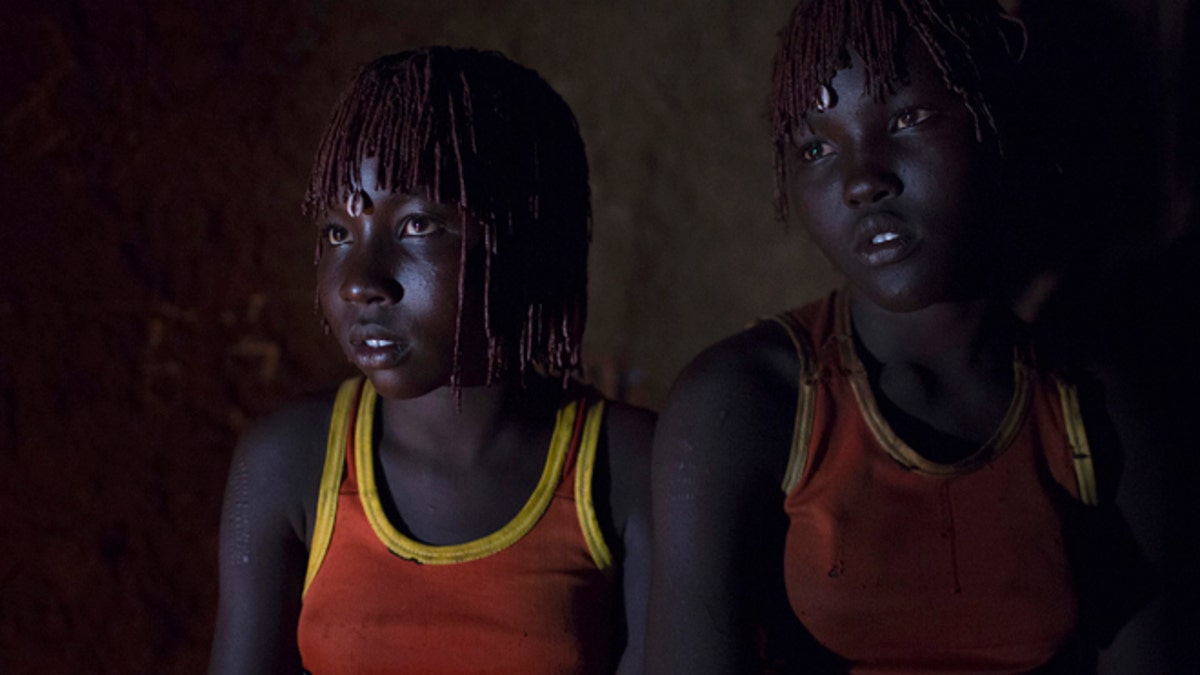
Oct. 16, 2014: Pokot girls wait together in a home before their circumcision ceremony in a village in Kenya. (Reuters)
It's been a long and “surreal” journey for Kenyan student Glory Gatwiri and one that she hopes will help to relieve the unconscionable struggles of women in her native country.
The 26-year-old is undertaking a PhD at Adelaide’s Flinders University and is telling the stories of Kenyan women suffering from vaginal fistulas in order to raise awareness and enact change in the African country.
“It’s such a pandemic in Kenya. I do not understand why it’s not talked about more,” she told news.com.au
The condition means that suffers have an abnormal opening, or hole, between their reproductive organs and their other body parts. Due to the heavily patriarchal nature of Kenyan society and the treatment of women, the condition is all too common.
“It’s basically been eradicated in the west, in any developed country,” she says. “That is not the case for the third world. No woman should be living with this in the 21st century. This is a preventable tragedy.”
The condition means that women will suffer from incontinence. The inability to control their bowels makes it much more difficult to stop the spread of disease.
There is also a great deal of social stigma attached to sufferers and these women live a life of “shame and solitude,” Ms Gatwiri says.
While she laments the existence of the disorder, she fully understands the causes of the problem.
As a part of her studies, Ms Gatwiri recently returned to Kenya to interview 30 women at a special clinic in Eldoret, 300km west of the capital Nairobi.
The condition is a result of trauma, and while the most cases arise from prolonged labour and inadequate care during the birthing process, other causes include rape, genital mutilation and the practice of child brides.
Ms Gatwiri spent time with Sasha, a young patient who was married off at the age of nine.
“She was so young when she was married off that she went to look for other children to play with,” she says. She fell pregnant at the age of eleven and was so naive she didn’t even know what was happening to her body.
“She spent six days trying to push out a baby that could not fit,” says Ms Gatwiri.
The young girl has since had a number of surgeries but doctors have said the hole is too big to fix. “The only mistake she made was being born a woman.”
Another patient at the clinic was a 68-year-old woman who had lost eight babies through inadequate medical care before living in isolation with a devastating fistula.
Ms Gatwiri was born and raised in Kenya and views the issue as “reflective of where we’ve gone wrong as a society.”
She came to Australia in 2012 on a scholarship after studying an undergraduate degree in social work. She is telling the story of these women as part of an effort to establish bilateral collaborations between Kenya and Australia in order to achieve zero rates for maternal injuries.
Ms Gatwiri says for most cases of fistulas could be fixed for about $380 per surgery but such a figure is “a dream” for women in her village.
It’s been a whirlwind journey for Ms Gatwiri whose masters and PhD scholarships have been financed by Melbourne philanthropist Mrs Gwen Waters.
“Growing up in such a poor environment, I wasn’t going to give this opportunity up,” Ms Gatwiri says. “Growing up in poverty, seeing a very dim future for me and my family, it’s been surreal.”
She will be the first woman in her village to achieve a PhD if she graduates on time next year. While she is dedicated to the stories of the women back in Kenya, she hopes her own will also inspire positive change as well.
